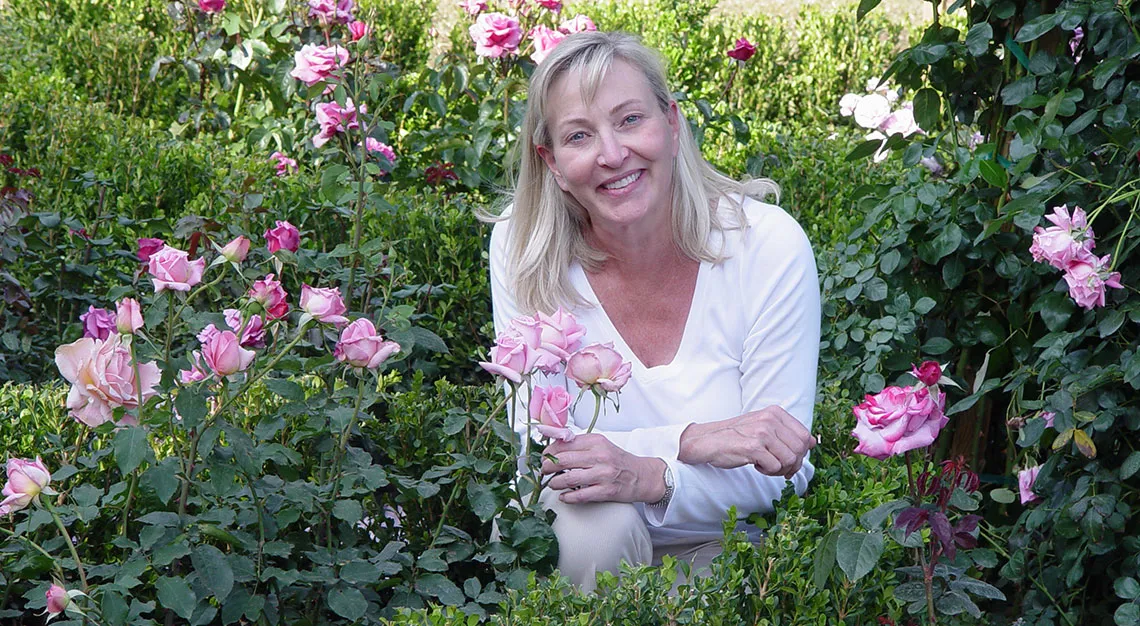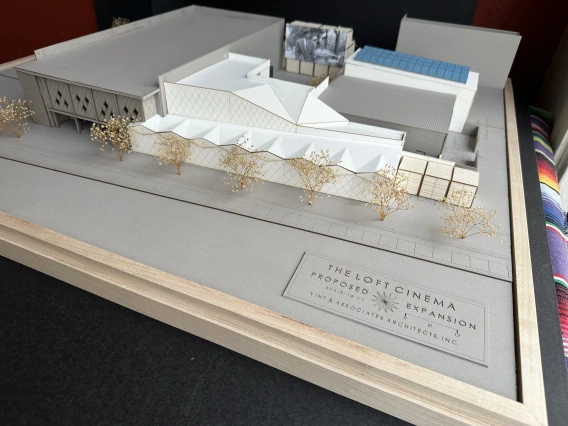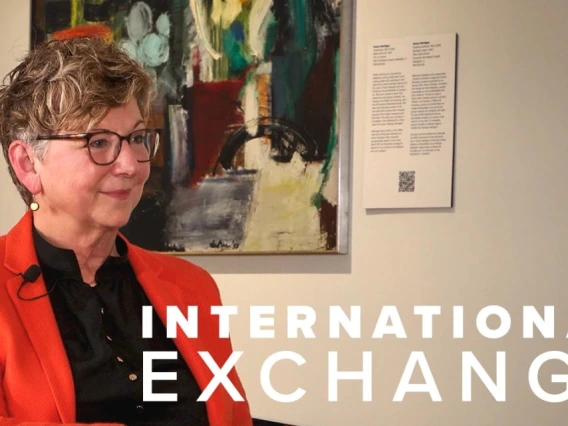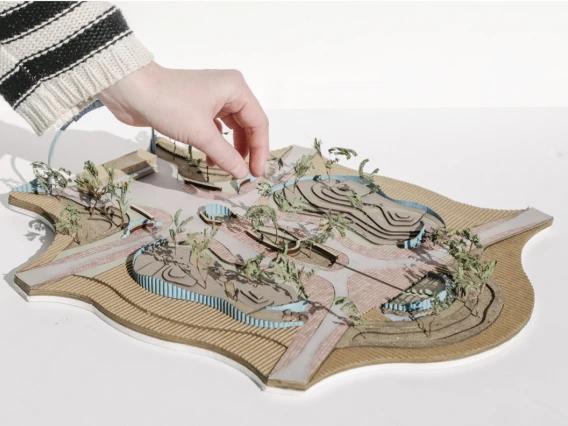CAPLA Celebrates Heather Henricks Lenkin ’79 B.Arch, 2020-2021 Alumna of the Year

The Arizona Alumni Association has named Heather Henricks Lenkin ’79 B.Arch as its 2020-2021 Alumna of the Year for the College of Architecture, Planning and Landscape Architecture. Heather was chosen for her outstanding career success, passionate work to protect the world’s cultural resources and unwavering support of the university.
Lenkin designs landscapes that promote both joy and utility. Her work has won abundant recognition and international praise, and her passion for the built environment also has led to her tireless efforts to protect cultural and historic resources.
A 1979 University of Arizona graduate with degrees in both interior design and architecture, with honors, Lenkin served as president of Lenkin Design in Pasadena, California for more than 25 years. She serves as a trustee of the University of Arizona Foundation as well as recently serving as a trustee for the World Monuments Fund and Frank Lloyd Wright Foundation.
Preservation work has been a lifelong interest for Lenkin, and she has traveled the world to share her expertise in protecting culturally significant sites and structures. Southern Arizona’s Mission San Xavier del Bac was designated as a World Monuments Fund Watch Site in 2016 due in large part to her efforts to raise worldwide awareness and concern about its status.
Lenkin was born in River Forest, Illinois, where she found early inspiration in the hallmarks of the Prairie School architecture movement as embodied in the work of Frank Lloyd Wright. In addition to UArizona, she furthered her education with studies abroad at the Grand Lycee d’Antibes, France and the University of Copenhagen, Denmark, as well as at the University of California, Berkeley and the University of Southern California, Los Angeles.
Lenkin and Lenkin Design have won abundant recognition and praise over the years. She is the first two-time recipient of Garden Design magazine’s “Golden Trowel” award honoring “America’s Best Gardens.” Her own home gardens have been selected by Japanese public television and Great Gardens magazine as one of the “Top Ten Gardens in the United States.” Cottage Living magazine called her garden one of the “Ten Most Romantic Gardens in the United States.”
In addition to her work with the UA Foundation, Lenkin has supported and advised the College of Architecture, Planning and Landscape Architecture, the John and Doris Norton School of Family and Consumer Sciences and the Honors College. She established a scholarship fund in honor of a former director of the School of Landscape Architecture and Planning at CAPLA. This endowment, the Ronald R. Stoltz, FASLA, FCELA Scholarship, supports students studying landscape architecture.
“I have known Heather as a professor, an employee in my architectural firm, a professional mentor and, of course, her friend for almost four decades,” says CAPLA Dean Emeritus Charles A. Albanese. “Throughout her relationship with UArizona, Heather has contributed her time, expertise and support in countless ways.”
“Heather is the kind of designer you strive to become yourself—creating meaningful, memorable work that touches the soul as well as the senses,” says CAPLA Dean Nancy Pollock-Ellwand. “Through her practice and advocacy, she has enthusiastically promoted and demonstrated the value of design and preservation. We couldn’t be happier to honor Heather with this award.”



